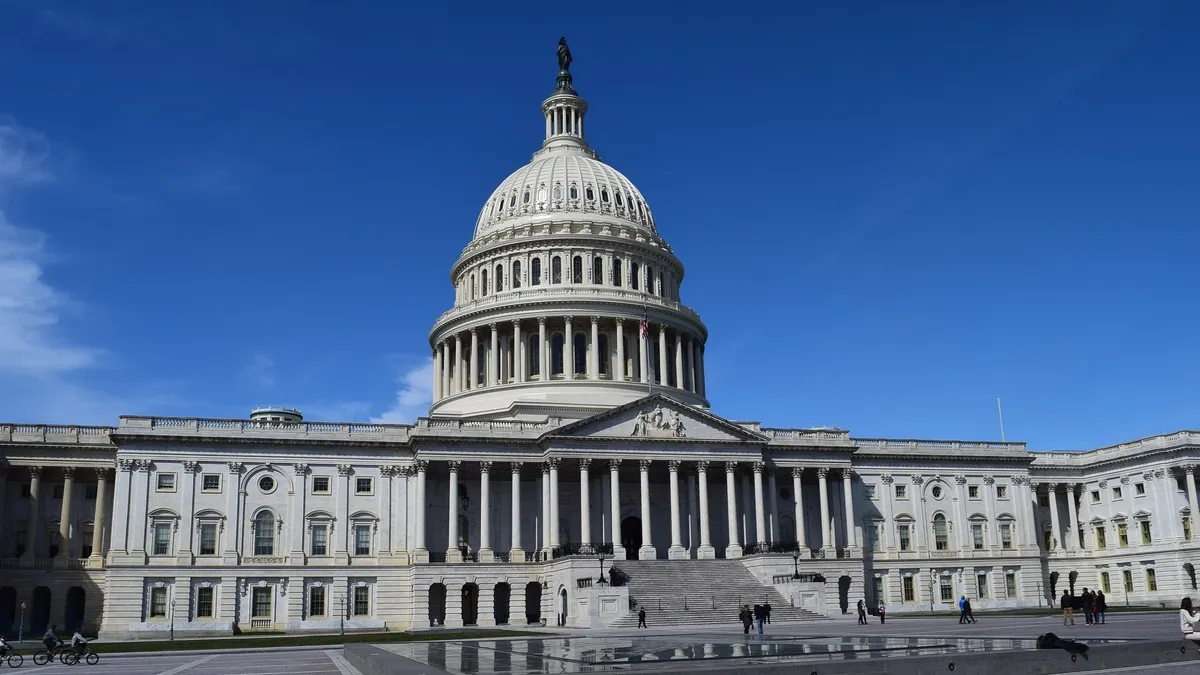Dive Brief:
-
Three dozen higher education groups are requesting Congress make it easier for small colleges to access federal coronavirus relief programs aimed at small businesses if it expands them in the future.
-
In a letter from the American Council on Education (ACE) to lawmakers last week, the organizations ask for more flexibility in loans administered by the U.S. Small Business Administration (SBA).
-
Institutions have been trying to minimize financial damage from the pandemic as many refund room and board money and grapple with uncertain enrollment numbers for the fall term.
Dive Insight:
The latest coronavirus aid bill, which President Donald Trump signed on Friday, provides $484 billion for small business loans, as well as healthcare providers.
It specifically replenishes $310 billion in funding for SBA loans called the Paycheck Protection Program (PPP), which was created to help small businesses continue to pay their workers and other expenses, such as mortgage or rent, as well as utilities.
The first round of PPP funding, around $350 million, ran out in less than two weeks. The program provides loans with a 1% interest rate to small businesses, mostly defined as those with 500 or fewer employees. The loan can be forgiven entirely if the employer spends three-quarters of it on payroll costs while maintaining pay levels and keeping all employees paid for eight weeks.
While PPP is available to colleges, only a narrow subset qualify and so the groups are seeking to ease the program’s restrictions.
In the letter, ACE President Ted Mitchell wrote that the sector is struggling, with ACE estimating institutions will be returning around $8 billion in housing and meal costs to students whose campuses largely closed as a result of the pandemic.
However, Mitchell wrote, a vast majority of small public colleges can’t apply for PPP because they aren’t technically categorized as 501(c)(3) entities. Public colleges are tax exempt as entities of their states or localities, but many aren’t organized under that nonprofit status.
The groups are asking for public institutions to be able to access the program if it is expanded, and for states to borrow the PPP funds on their behalf.
Private colleges with 500 or fewer employees are generally eligible for SBA coronavirus-related relief, including the Economic Injury Disaster Loan Emergency Advance, which provides up to $10,000 to struggling businesses.
But the SBA considers student employees in certain loan calculations. Many of those students are no longer on campus and not currently working, Mitchell wrote, and should not be counted in the 500-employee threshold. Removing students would also "accurately reflect the size of institutions in their roles as employers," he added.
The groups are also requesting that the employee threshold be raised for postsecondary institutions. Mitchell noted that certain industries, such as publishing and the research and technology sectors, are exempted from the SBA requirements and can have up to 1,000 employees and still qualify for loans.
"Given the importance of small colleges and universities to local economies and the ripple effect of these institutions becoming fiscally insolvent to their surrounding communities, it is critical that eligibility standards accurately reflect the average number of employees that colleges and universities maintain," Mitchell wrote














